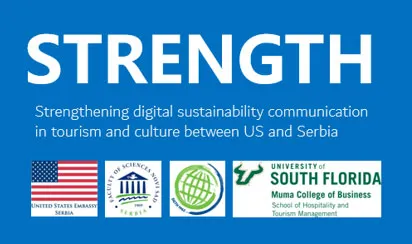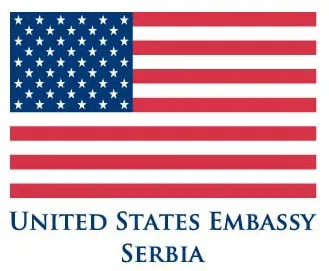About the project
This project is funded by the U.S. Embassy Belgrade of the U.S. Department of State under the University Partnership Program.
The U.S. Embassy works to assist the Serbian people to strengthen democracy, rule of law, and the protection of human rights; help fight brain drain and advance the country’s economic development; promote regional stability and cooperation; cooperate with international partners to combat crime, terrorism, human trafficking, and other global challenges; and make further progress towards Serbia’s accession into the European Union. The program also strive to explain U.S. policies, culture, society, and values to Serbian audiences and deepen ties between our two countries. University Partnership support these goals while facilitating lasting connections between Serbian and American institutions of higher education.


Sustainability communication
Sustainability communication refers to the process of communicating information about sustainable development and practices, sustainable lifestyles, and the impact of human activities on the environment. Effective sustainability communication involves also sharing information about The United Nations Sustainable Development Goals (SDGs) and how individuals and organizations can act to achieve them. It also involves promoting sustainable behavior change, increasing awareness of the importance of sustainable development. Tourism enterprises are making commendable efforts in promoting sustainability; however, they appear to be falling short in effectively communicating their sustainability initiatives. Even when sustainability themes are integrated into their marketing strategies, it remains unclear if the intended audience is fully grasping the sustainability messages being conveyed. Therefore, it is necessary to evaluate the effectiveness of sustainability messaging among different audiences, including the assessment of the impact of culture and communication on the understanding and acceptance of sustainability messages in tourism marketing.
The project was supported by the US Embassy in Belgrade. The views, opinions and conclusions expressed in the project do not necessarily express the views of the US Government, but solely those of the authors.

